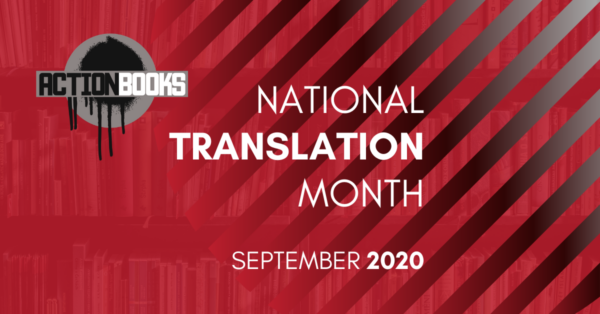The Voter Speaks
We cannot give up voting by ostracon—why is that, you ask?
So that even those who have not enough status to sit in the audience
Can rewrite the plot for the protagonist on stage, you see
So that even characters who reign for one act over unwashed masses
Can still suffer expulsion or death at the roll of the dice
Besides, even if we later learn we made a mistake,
We will get by, no need to take responsibility
Ordinarily, we live under their thumbs, do just as they say,
So having that right at least makes it a draw
History will pass final judgment—or so everyone says
But when we pass away, we will be forgotten completely
We’ll feel no pain whatsoever, not even the slightest itch
Toss of the Dice
Will we be born as humans or swine? The gods roll the dice to see—
If we are born pigs, our throats will be cut, our blood will fall,
Forming large circles, and when those circles close, judgements begin
What will that day of judgement bring? Humankind must entrust itself
To the names of the gods, in other words, to the holy blood of pigs
Which would make us happier, being born as humans or swine?
For that too, the capricious gods once again roll their wayward dice
The Greeks
They felled forests, built ships, and carved their oars
They descended to beaches, and rowed out to sea
Toward unknown islands, never before visited inlets
Once there, they constructed fortresses,
And where there were people already, they traded blows
The start of civilization is always the same,
Guilt from having spilled so much blood
The fruit born of adventure is slaughter,
Conquest under the guise of colonization
The name by which we know them is “the Greeks,”
A pronoun that stands in for all humankind
Eyes
So many summers, so many naked young thighs
Knees, shins, ankles, feet have passed by, one after the next
Only the watching eyes, bloodshot and dry, grow old and remain
Eventually those eyes, still open, will stop moving too
From the bedside, fingers will close the lids, covering them in darkness
They’ll be pushed in a coffin into the furnace and embraced by flanking flames
Warm bones will be broken and lifted with long chopsticks on either side
The eyes that are so central to existence will be nowhere to be found
Grieving mouths will intone, “Truly, he was a man of the eyes”
Listening ears will assent, “Indeed, his eyes were at his very core,
But those holes were terrifying, sucking the life out of all they observed”
Perhaps those holes will continue on after death, into the future, into eternity
Perhaps they’ll continue to exist, sucking up nothingness and emptiness too
Mutsuo TAKAHASHI (高橋睦郎) (1937- ) is one of Japan’s most prominent living poets, having won almost every major poetry prize in the nation. Since first attracting the attention of the Japanese literary world with his bold poetic evocations of homoerotic desire in the 1960s, Takahashi has published several dozens of books of poetry and countless volumes of poetry, essays, and literary criticism. Five collections of his poetry are available in English translation: Poems of a Penisist (Chicago Review Press, 1975, reprinted University of Minnesota Press, 2012), A Bunch of Keys (The Crossing Press, 1984), Sleeping, Sinning, Falling (City Lights, 1992), Two Shores (Dedalus, 2006), and We of Zipangu (Arc Publications, 2007). His memoir Twelve Views from the Distance (University of Minnesota Press, 2012), translated by Jeffrey Angles, was shortlisted for a Lambda Literary Award. Takahashi presently lives in the seaside city of Zushi, ten kilometers to the south of Yokohama. All of the following poems come from the collection Only Yesterday (Tsui kinō no koto, 2018), a book in which Takahashi revisits many of the principle themes of his writing career in light of his lifelong relationship with Greece, Greek literature, and Greek love.
Jeffrey ANGLES (1971-) is a poet, translator, and professor of Japanese literature at Western Michigan University. His collection of poetry Watashi no hizukehenkōsen (My International Date Line, 2016), which he wrote in Japanese, won the highly coveted Yomiuri Prize for Literature, comparable to the Pulitzer Prize in the US. He is the first non-native speaker ever to win for a book of poetry. In addition, he has published dozens of translations of Japan’s most important modern authors and poets earning numerous prizes for his translation work. He believes strongly in the role of translators as activists, and much of his career has focused on the translation into English of socially engaged, feminist, or queer writers. He has published Killing Kanoko: Selected Poems of Hiromi Itō and Wild Grass on the Riverbank, also by Hiromi Itō, with Action Books.
